Clyde Bergemann SMART Clean is a modular optimisation system which includes several optimisation modules for different locations in the steam generating process. The following modules in combination with different Controls & Diagnostic products will provide the basis to operate your steam generator with highest efficiency.
SMART Furnace HFX in combination with, for example SMART Flux Sensors continuously monitors and analyses the deposit situation in the furnace to determine suitable and demand-oriented cleaning actions. From the measured data – heat flux and surface temperature, the cleaning actions in the corresponding cleanings zones are started and monitored at the same time according to its effectiveness. SMART Furnace allows a selective cleaning of cleaning zones in the furnace based on its measured cleanliness independent from fuel variations and boiler load and allows the operator to run in either fully automatic mode or as a cleaning proposal system which indicates the cleanliness of the individual cleaning zones by an easy to interpret Software HMI.
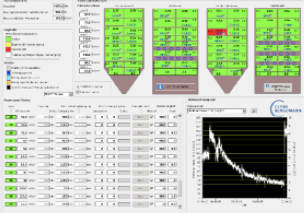
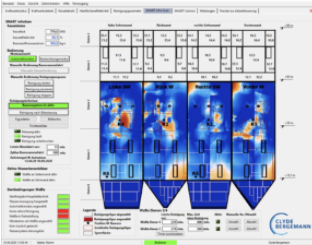
SMART Furnace Infra Scan continuously monitors and analyses the deposit situation in the furnace to determine suitable and demand-oriented cleaning actions by using the SMART InfraScan infrared cameras. Ash deposits on the membrane wall work like an insulation which reduces the heat transfer from the furnace to the membrane wall. As a result of this, the surface temperature of the deposits increase and will be determined as a deviation and thus hot spots are determined. According to the determination of the hot spots, variable cleaning areas are established and cleaned (e.g. the corresponding SMART Cannon or wall blower).
With SMART Convection TDM the entire power plant process is illustrated and thermodynamically balanced by using online process and measuring data, mainly from water/steam circuit and along the flue gas path. SMART Clean TDM reads the necessary process and measurement values for each calculation step fully automatically and in real-time and provides, for example, heating surface effectiveness, temperature profiles, flue gas composition and pressure distribution. With the assistance of what-if scenarios, process modifications that occur, such as variation of the fuel or air mass flow rate, can be simulated. In the process, the changes of the process parameters resulting (e.g., flue gas compositions, temperature progression, operating costs, etc) are presented in a well-arranged manner.
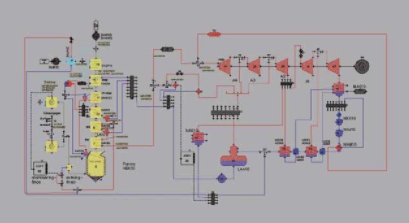
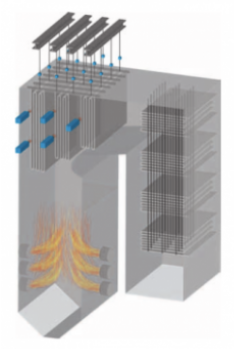
SMART Convection SHFM is designed to localise deposits in vertical heat exchangers. Weight information provided by SMART Gauge sensors mounted on the individual hanger rods of vertically hanging superheaters will trigger cleaning activities by the relevant soot blowers. The online measurement of the SMART Gauge Sensors is also used as a direct feedback on the success of the cleaning activity. As the system recognises the results from each cleaning action, a self-learning process is set up.
SMART Convection Matrix Clean is designed for use in horizontal mounted heat exchanger bundles and the analysis of the different fouling situation of the heat exchangers in the convective part of the boiler. The weight information of individual SMART Gauge Sensors and the heat transfer values of the single heat exchanger bundles calculated by the SMART Convection TDM is combined and provides the necessary information to select required cleaning activity and define demand-driven cleaning parameters.
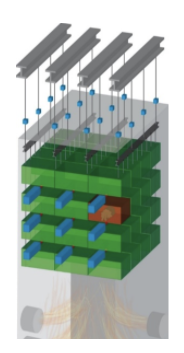
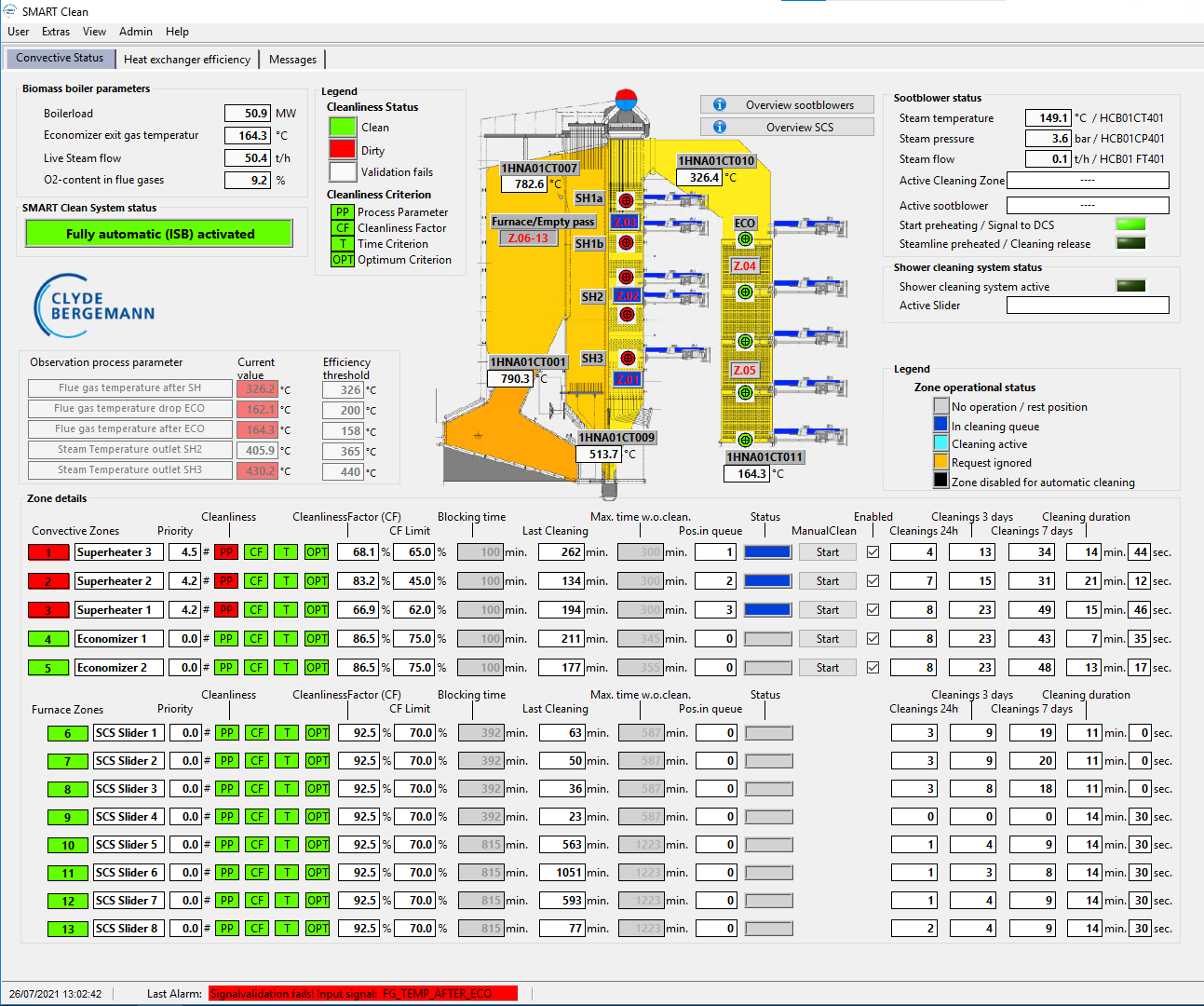
SMART Clean Compact is the appropriate, cost-efficient solution for increasing the process efficiency of smaller waste and biomass-fired boilers as well other industrial boilers. SMART Clean Compact uses available typical key process data (e.g. water, steam and exhaust gas measurements) from the DCS, to define the impact of different cleaning equipment to the process parameter and based on the results, cleaning devices such as the SMART Cannon, SMART SCS, Sootblowers and SMART Rapping System, are controlled to provide optimum boiler performance. The extension by SMART Membrane Sensors, allows a more detailed view on cleaning zones in the furnace.